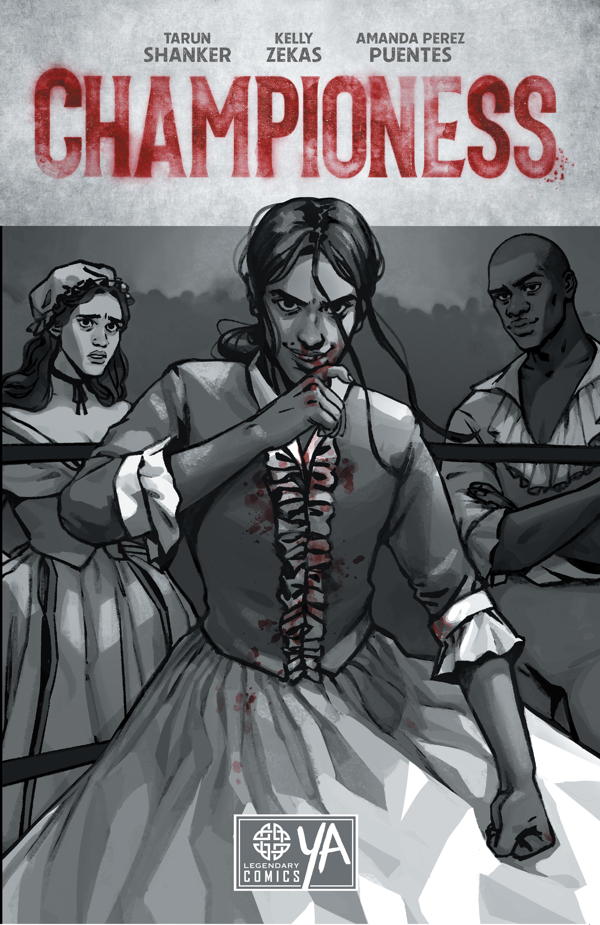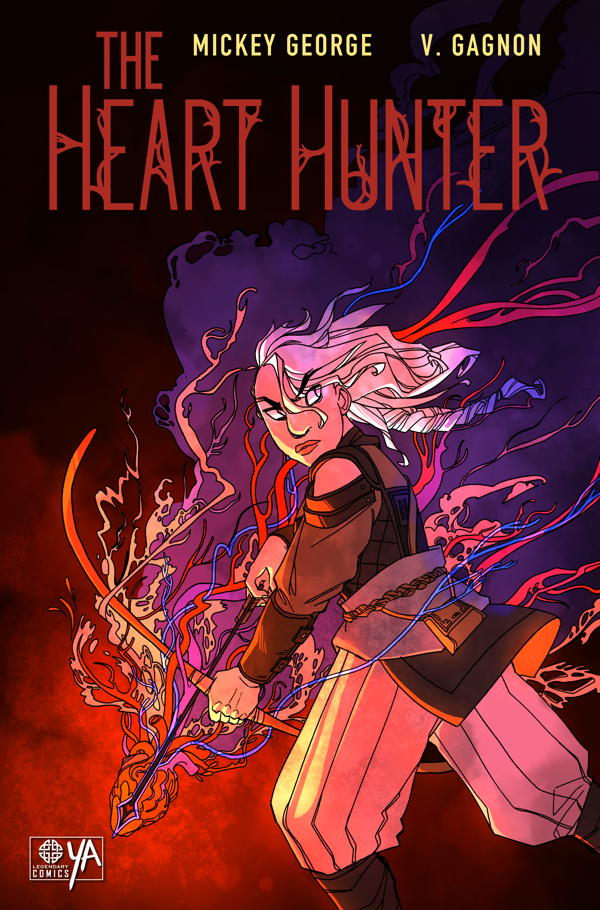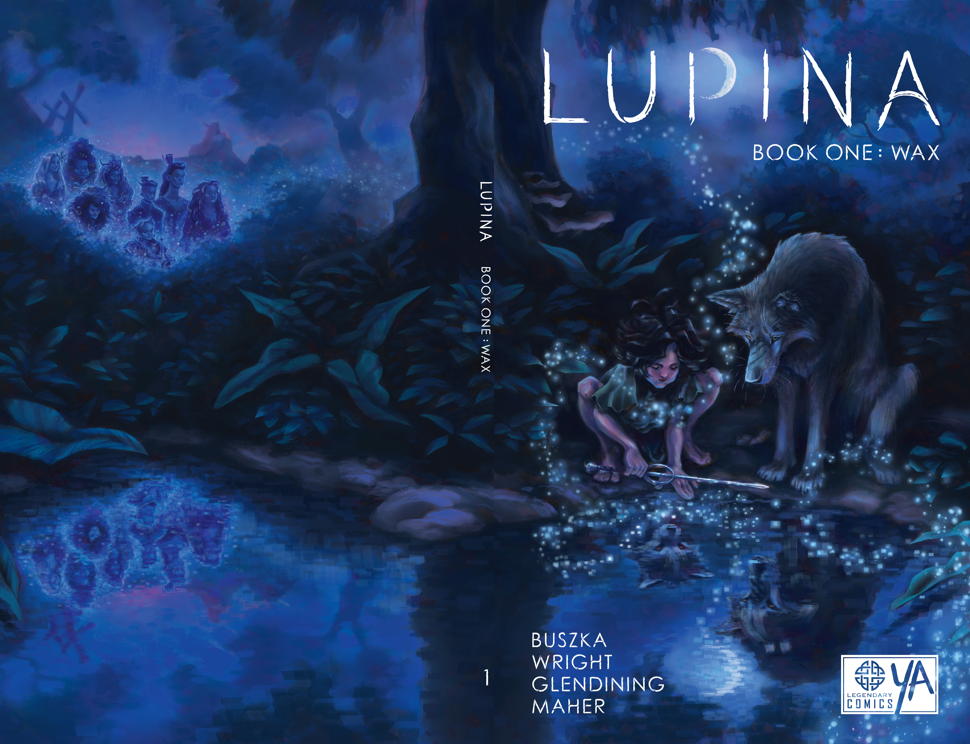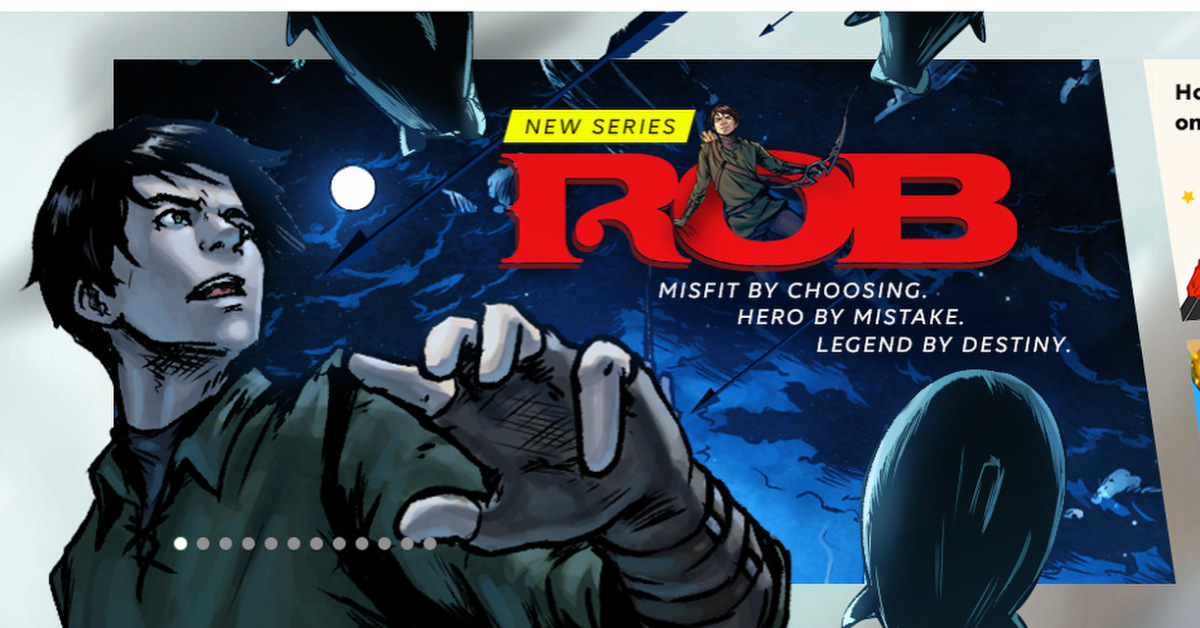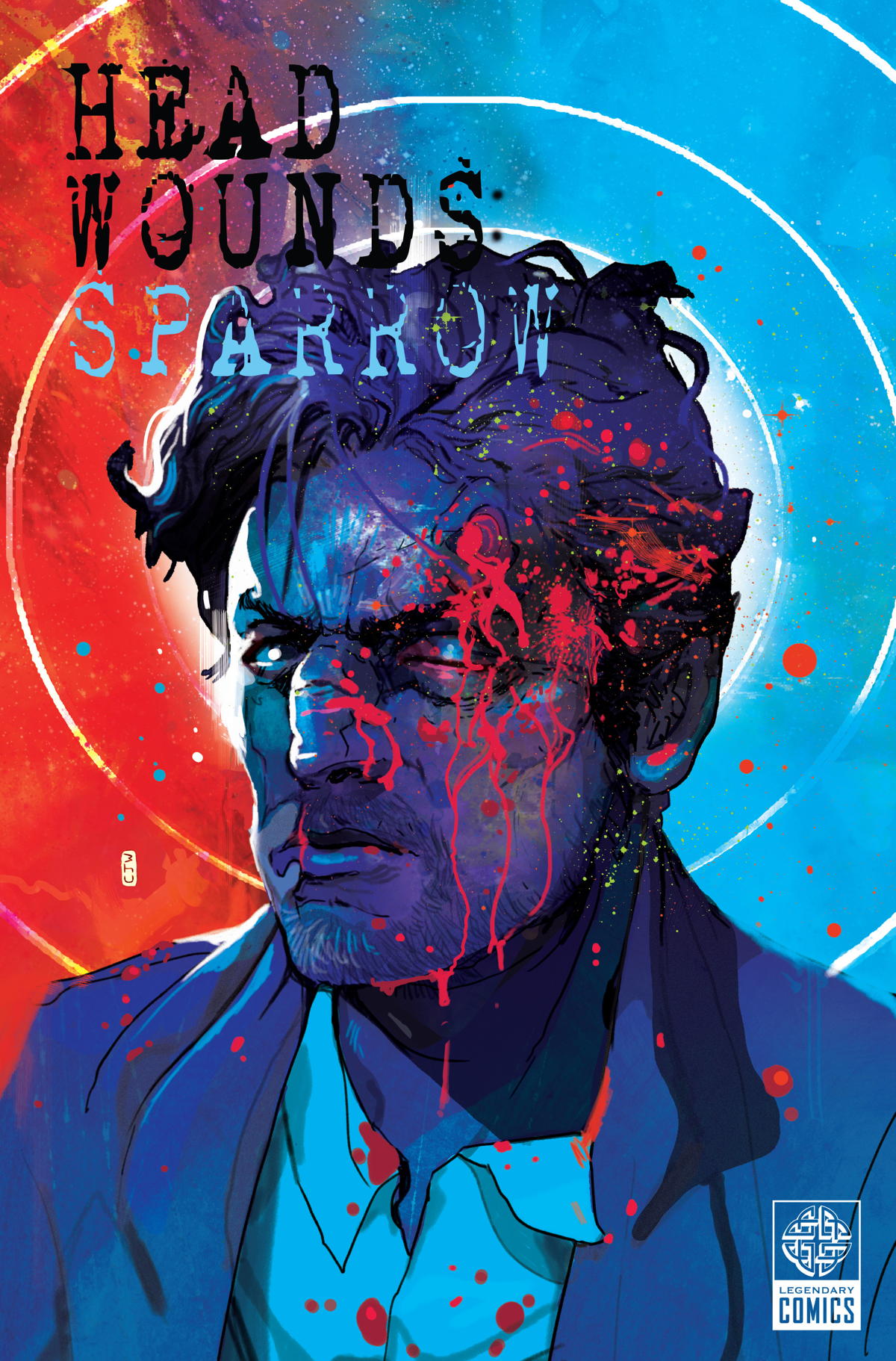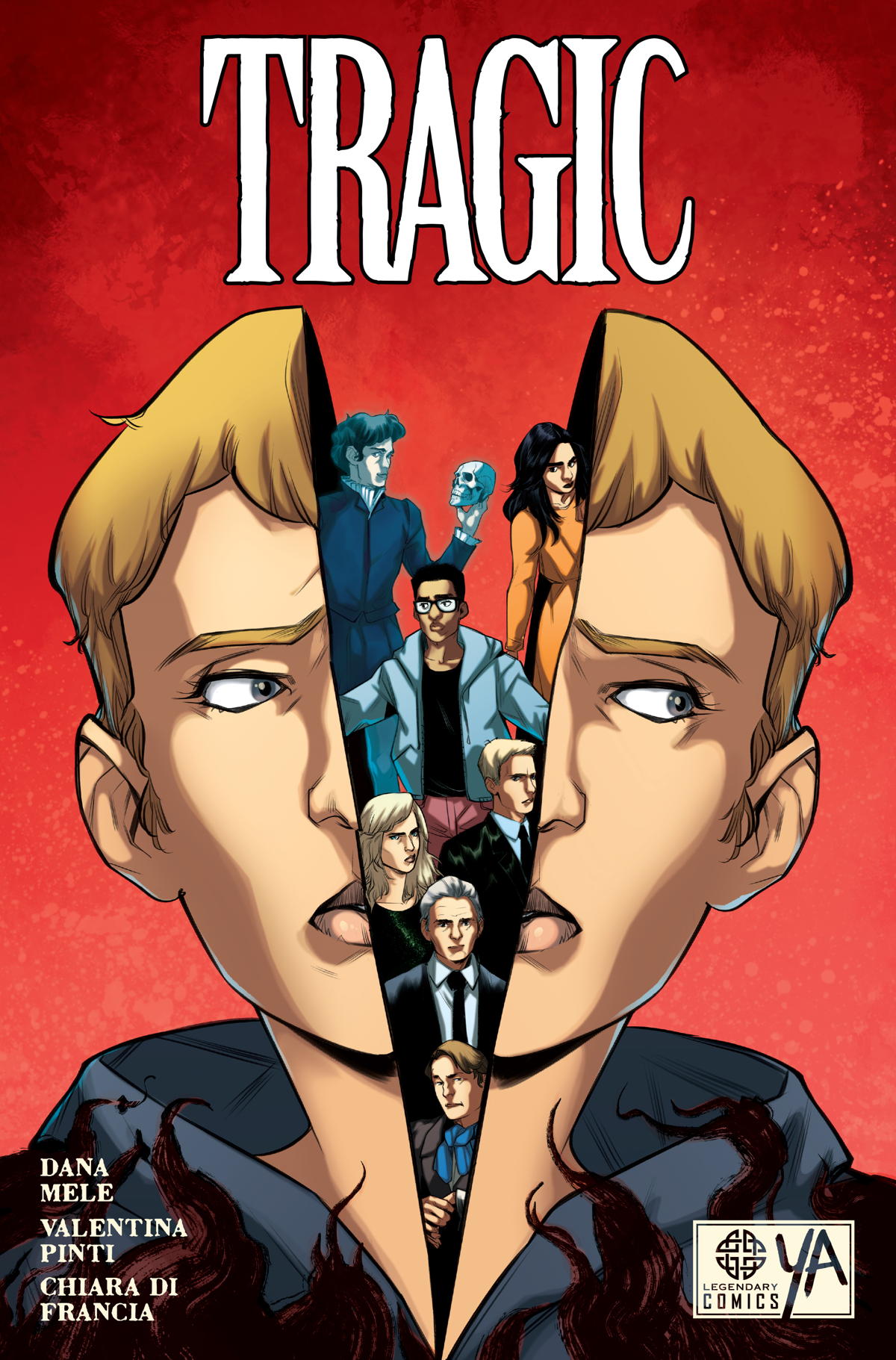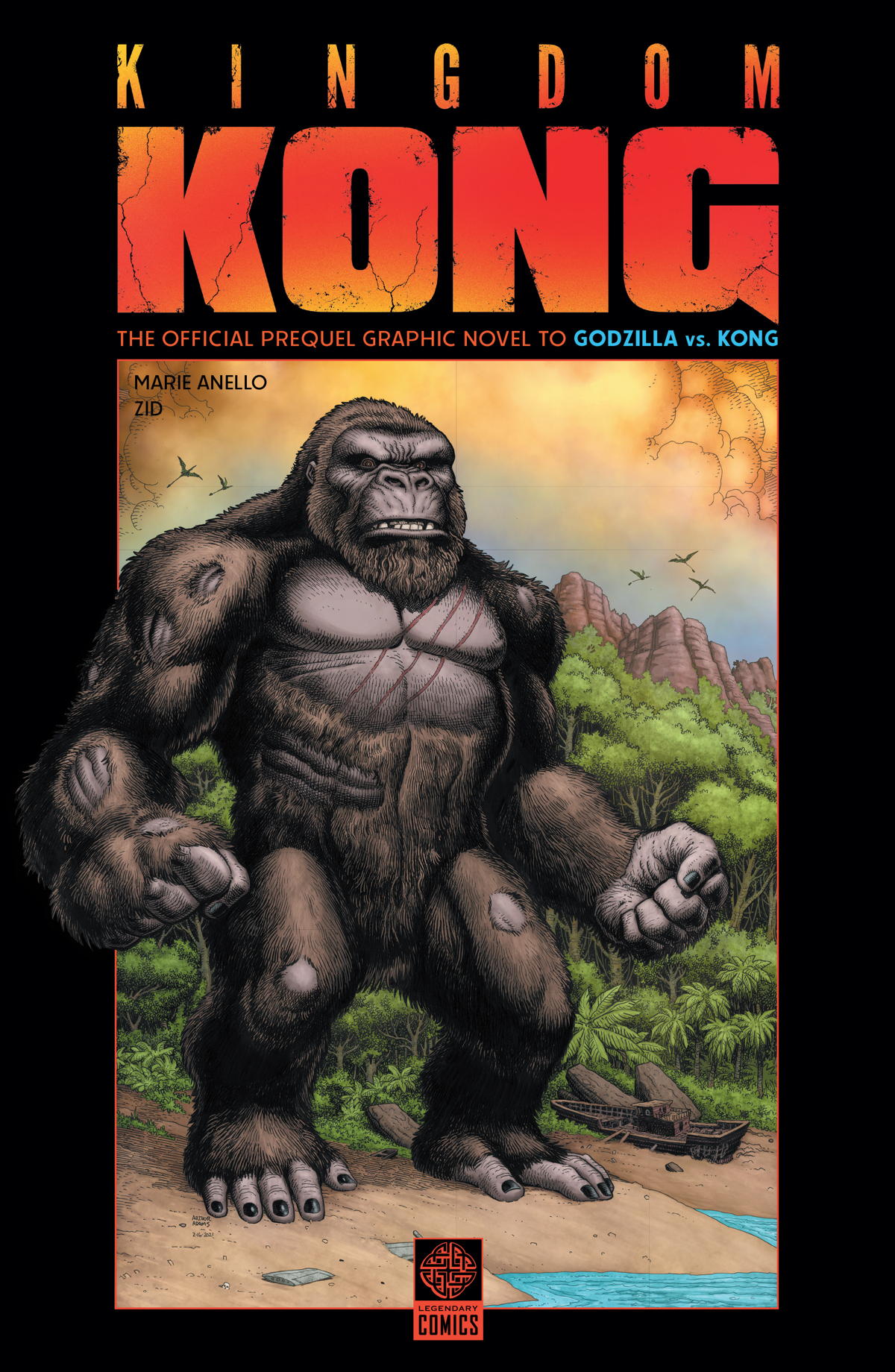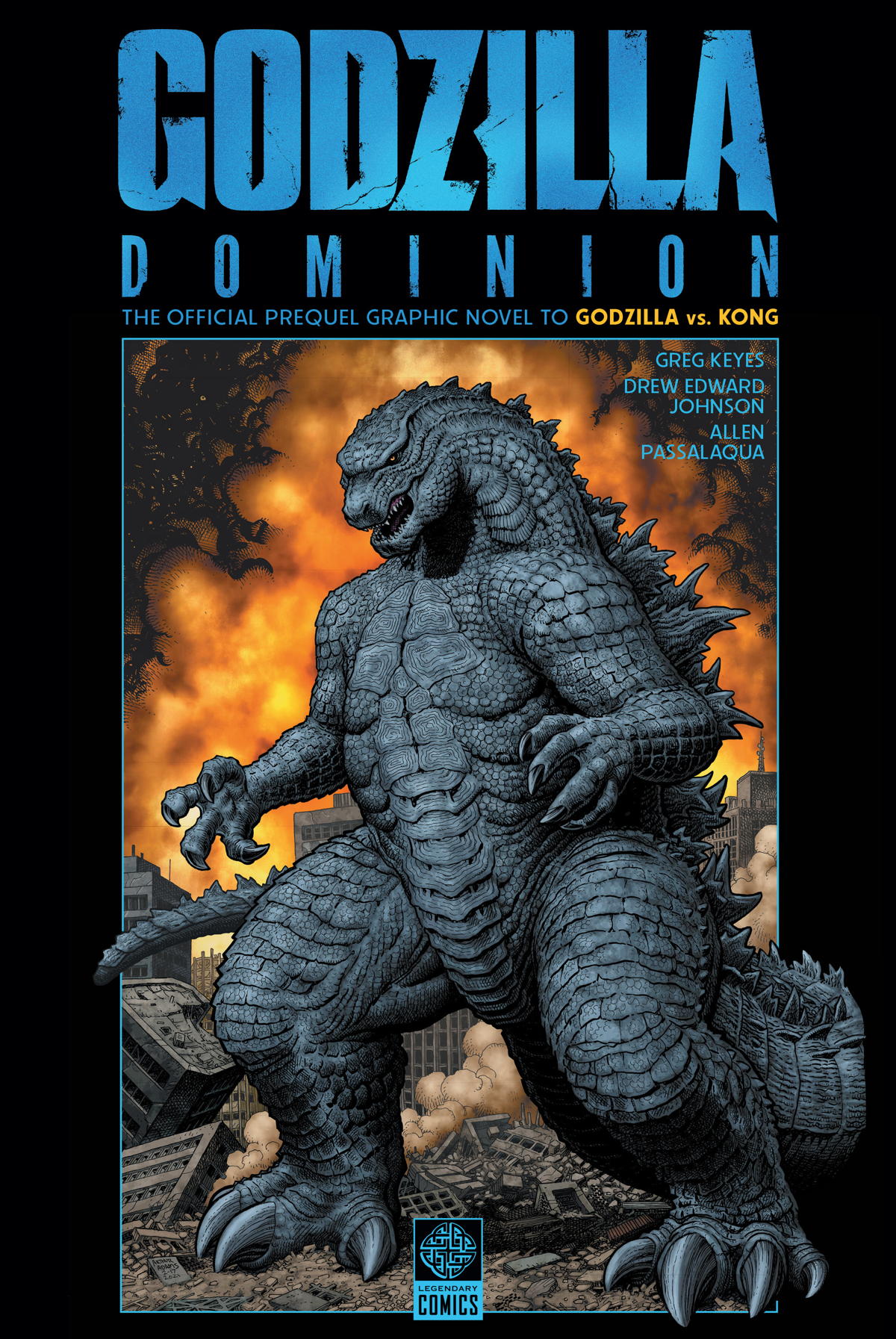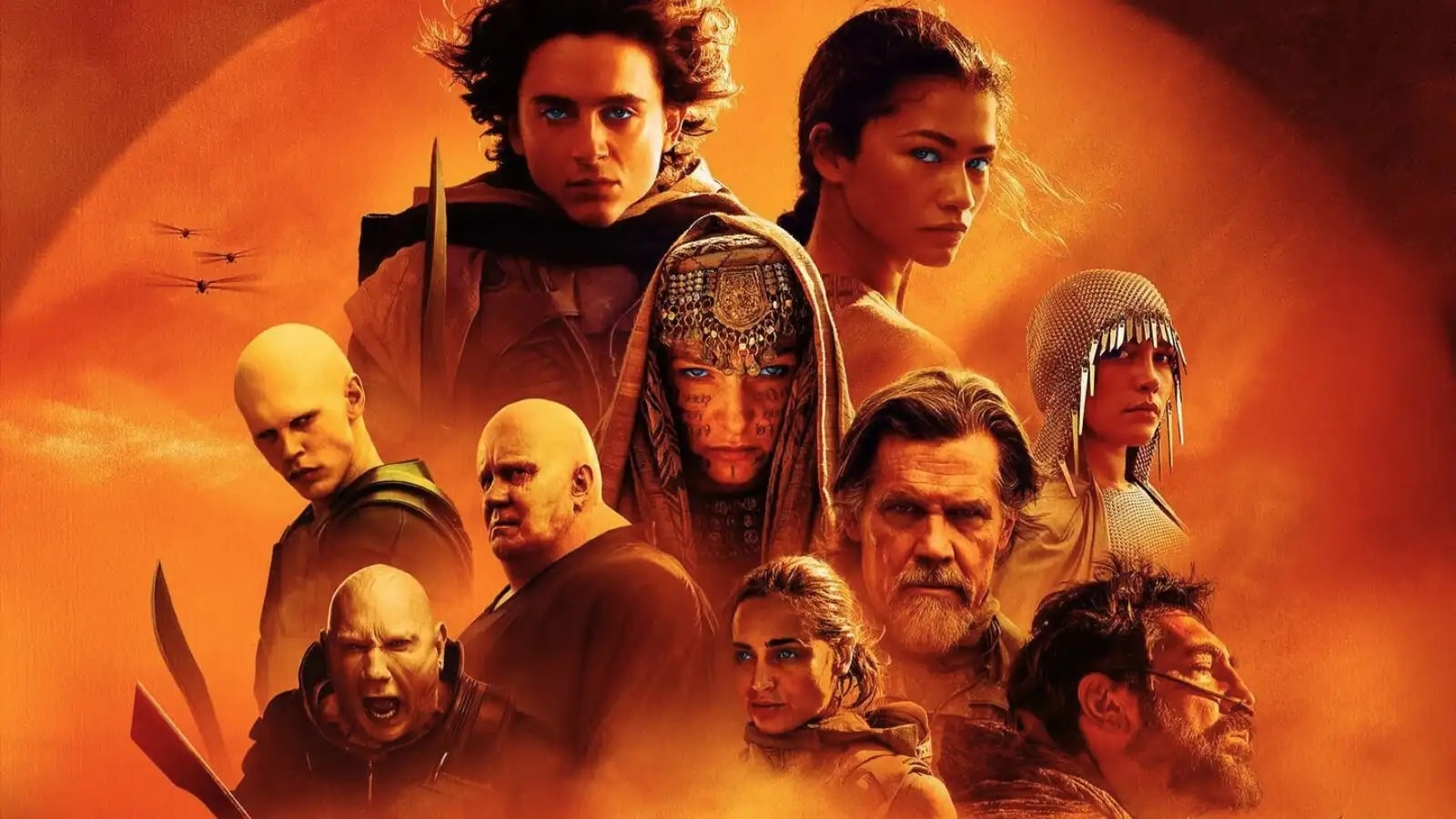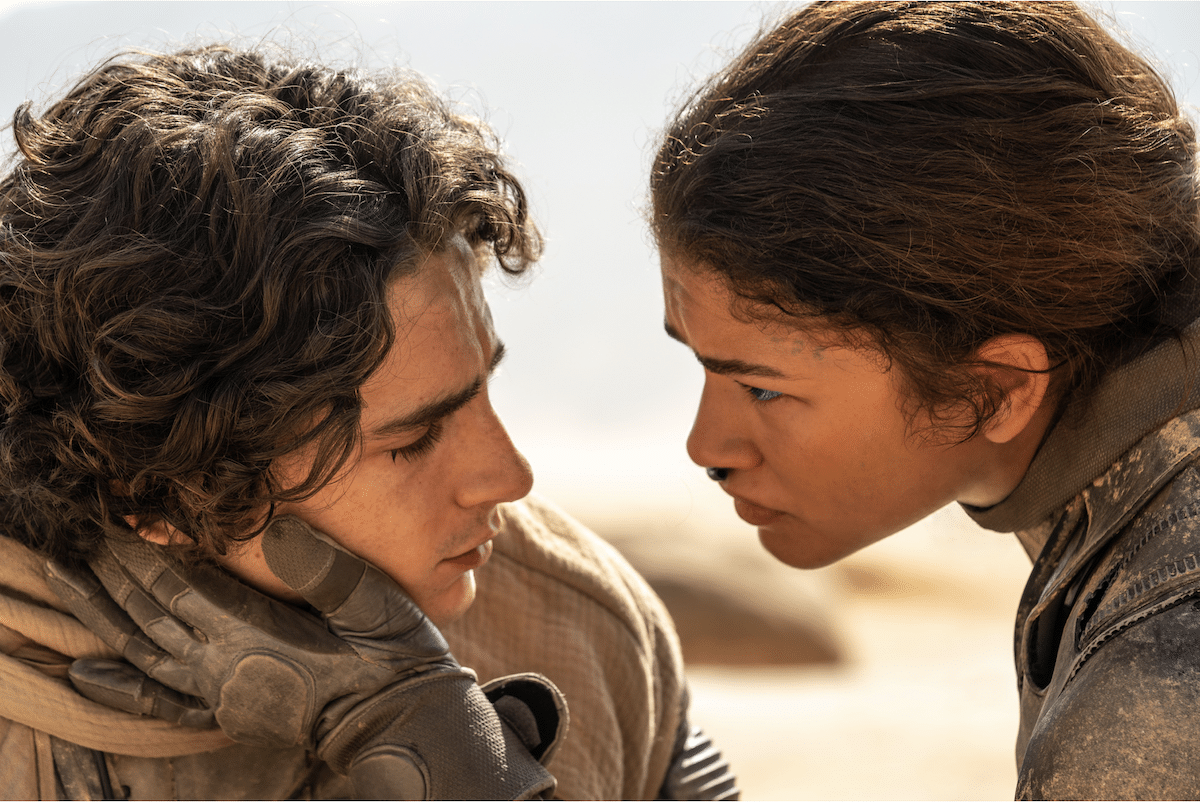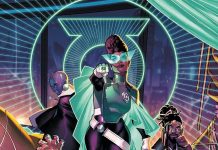Legendary Comics has been around for more than a decade, but they have been fairly quiet in recent years, despite continuing with their publishing program. That just changed as they’ve announced a new YA line of books, as well as some other exciting projects from both comics stars — Lilah Sturges, Christian Ward — and YA authors. We thought it was high time to catch up on what they’ve been doing.
The company launched in 2010 as part of Legendary Entertainment, a film and TV production company run by Thomas Tull, who was not only the producer of Christopher Nolan’s Batman Trilogy but a huge comics fan. While the idea of a movie studio launching a comics line is a familiar Hollywood tale, Legendary Comics produced a series of high profile projects by Matt Wagner and Grant Morrison as well as comics that tied in to Legendary films like Pacific Rim.
The film end of things changed a great deal when the company was acquired by the Chinese company Wanda in 2016. Tull left, as did the comics lines’ founding editor Bob Schreck. However, the film output has continued with the interconnected King Kong and Godzilla Monsterverse movies, and much more. This year alone Godzilla vs Kong blasted into theaters and HBO Max, and the eagerly awaited Denis Villeneuve version of Dune is upcoming.
How do comics fit in at 2021 Legendary? We were able to Zoom with SVP of publishing Robert Napton, director of publishing Jann Jones and senior editor Nikita Kannekanti to talk about Legendary’s transition and upcoming projects — and maybe a little history as well.
Many thanks to Legendary’s Sarah Jarvis for helping set up this interview; it’s lengthy but there’s a lot to cover.
MacDonald: So, I have been meaning to catch up with you guys for a while and with the announcement of the kids line, obviously it was a great entree to it. Robert, Legendary’s gone through a big transition since it started. What can you tell me?
Robert Napton: Just to give you a little background, I’ve been at Legendary Comics full time for seven years, after two years of consulting. When I joined the company it was still owned by Thomas Tull and the original comics team — including Bob Shreck and Greg Tumborello and Dave Sadove — were still there. When Wanda purchased Legendary and Thomas left, a lot of those folks also left at different times and I inherited the division, so to speak, in 2018. I was promoted to the head of the division and then brought in Nikita and Jann, and Wanda and Legendary became a new company. Comics had the opportunity to reboot and that’s what the three of us have been working on the last couple years, going after different types of material and changing what Legendary Comics could be. And a lot of that’s coming to fruition this year, which was really exciting. So that’s the shortest version I can give you.
MacDonald: Robert, we’ve talked in the past, but Legendary Comics started out as part of a studio that was super comics and fan friendly. And obviously Thomas was one of the king nerds of Hollywood. The fact that you guys are still around is very interesting, with all the changes. Obviously a lot of comics now are being made into movies, but you guys are coming from the other direction. Legendary is behind the whole Monsterverse so you can do comics about that. Godzilla vs Kong was a success at the box office, especially coming out of the pandemic, and you did a big publishing program for it.

MacDonald: You mentioned that you’re doing kids’ stuff and that’s the other big announcement that you have. Obviously, right now kids’ comics are huge, but what led you to this idea?
Napton: It’s really two things. Nikita came on board with a real vision for YA and so she’s been the inspiration and architect behind that. And Jann had a lot of background at Pixar and other places and really was passionate about doing something more for kids.
MacDonald: Nikita, can you add to that?
Nikita Kannekanti: Sure. I came to Legendary three years ago now — time flies! — and I have always just really gravitated towards young adult books in general. I just really love the characters and that they tell different types of stories that I personally don’t think I’ve seen in other media. So I really wanted to bring those unique voices into graphic novels. I have reached out to a bunch of authors that I’m a fan of. One of my first books, Championess, came out in April and that’s based on a true story of a female bare-knuckled boxer in 18th century London. That’s one example of a story that is unique and hasn’t been seen in graphic novels or any other TV or movies. I’m looking to elevate those kinds of voices and bring different perspectives into graphic novels.
MacDonald: Awesome! Jann, I know you’ve been doing kid stuff for a long time; what was your path here at Legendary?
Jann Jones: After I left DC I did a few stints over at Viz and Pixar/Disney. And I was over at GamesRadar, living in San Francisco and it was like, God, I don’t want to be one of these like 60-year-old women who gets evicted out of their apartment because it was sold and it’s so expensive. I thought maybe I’ll take a break. So I left publishing and I went into project management, which was awesome. And I learned a lot, but I missed the siren call of publishing and I don’t like making money. [laughter] So I’m back!
MacDonald: Ha! Well, Jann, you and I are both lifers — that’s pretty clear!
Jones: I genuinely missed it. And then this opportunity came up with Legendary and I was a little hesitant because for me, Legendary Comics have always been so bro and action oriented. It wasn’t my space. Even when I was at DC Comics, I liked the Vertigo books and the kids’ books more than the main line. But I spoke to Robert and I really liked what he had to say. So I came on board and I’ve edited a few things, like the Detective Pikachu graphic novel. Editing’s not my main job here. I wear a lot of other hats and I didn’t even know if I’d get to do it. But when Kong came around, I really saw an opportunity with the little girl Jia and Kong and their relationship as a book. What we do at Legendary doesn’t always translate well into those kinds of properties. But I really thought that this was the unique opportunity to do something. I told Robert and he was super supportive and we were off to the races! I was really lucky. I got Kiki Thorpe who is a New York Times bestselling author who I had worked with her at Pixar and artist Nidhi Chanani, who is outstanding.
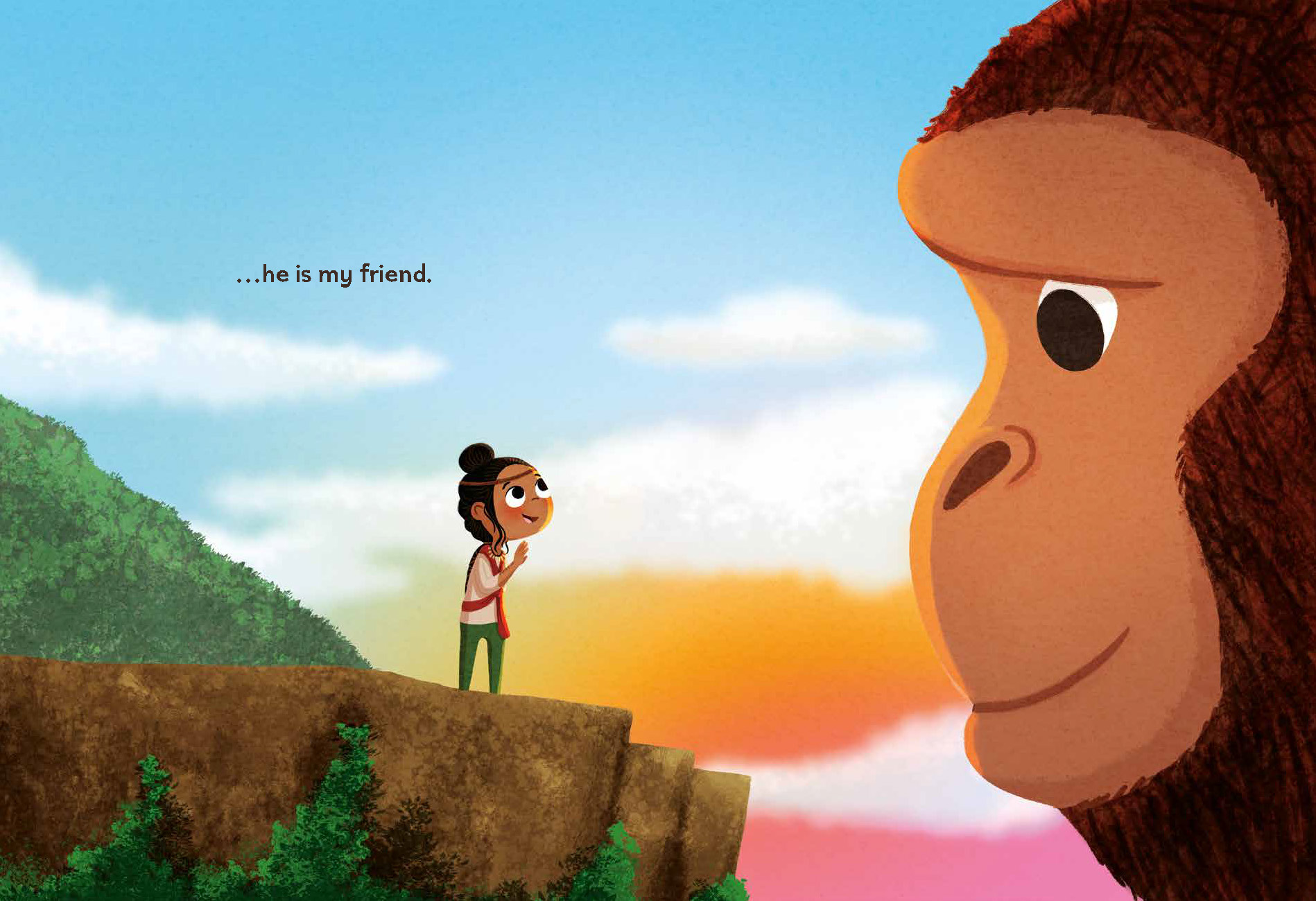
MacDonald: Right so what is the timetable for the YA launch? Is it an imprint? Are they all self-contained or are they periodical? ‘Cause boy, there been a discussion about that.
Napton: Championess came out in April and [we’re going from there.] One of the decisions I made when I inherited the mantle was to phase out the monthly comic book publishing model. The writing was on the wall for me. I just didn’t feel we were making the dent in the direct market that we wanted. So we shifted our focus to producing original graphic novels — we don’t really do [periodicals] at all.
MacDonald: Do you have a bookstore distributor?
Napton: We’re been with Simon and Schuster for our bookstore distribution for a couple of years. It’s been a great fit.
MacDonald: That just seems to be such a big part of all of this — S&S has been picking up so many smaller imprints.
Napton: Last year, things really were disrupted obviously. But we were already on our path, so we weren’t really part of the disruption — we had already committed to doing OGNs and we had already signed with Simon & Schuster. So we were, you know, minding our own business, continuing to do what we had planned to do. But obviously, a lot’s changed even in the last few weeks with the announcement that Marvel was doing comic shop distribution through PRH.
MacDonald: What other kinds of projects do you have coming up?
Kannekanti: For the YA line in particular we have a lot of new projects for 2021. One is The Heart Hunter which is set on an Island where everyone is cursed to wear their hearts outside of their bodies until they meet their soulmates. And then they’re allowed to leave the Island. On the Island, they’re immortal. But there are these people called heart hunters who are assassins, who kill other people’s soulmates, so people can stay on the island and remain immortal. The story follows one Heart Hunter named Psyche, who is sent to kill the king’s soulmate, but she ends up discovering how to mend her own broken heart and helping him heal as well.
MacDonald: Sold!
Kannekanti: The writer is Mickey George who wrote Speak Easy, Speak Love, which is a Shakespeare adaptation. We also have Lupina, about a girl whose entire family is killed. It’s in a world similar to ancient Greece, but in an alternate universe. Once her family is killed, she’s found and raised by a wolf and they then end up working together and going on a tale of revenge.
MacDonald: So these are definitely YA titles, not for middle grade.
Kannekanti: Yes. What really drew me to them is just that they’re really personal journeys that these characters go on. Lupina is written by James F. Wright who was Eisner nominated for Contact High. He is just super talented overall. The art is by Li Buszka. Another one we’ve announced is The Witches of Silverlake, written by Simon Curtis with art by Stephanie Son. Simon is also a novelist and he wrote Boy Robot, a SF book. Witches is set in Silverlake of course and it’s about this boy Elliot Green, who is a freshman in high school and discovering his sexuality. He’s just coming to terms with himself and trying to fit in to this new high school. He finds this group of outcast teens who are part of a coven. They accidentally do crystal magic which unleashes a demon — and they have to figure out what exactly is going on and how to stop that.
MacDonald: These sound great. Jann, what have you got going on?
Jones: So my days are pretty full just wearing literally all the hats, but I am working on an OGN with Lilah Sturgis and Alitha Martinez who are both amazing. The Science of Ghosts is a detective ghost story featuring a transgender detective. I’m super excited about it. This script is so good and Lilah is so talented. It’s been so wonderful to see her journey. The book is very fun, sexy and scary, but it’s also really personal. It’s a detective story about a person who happens to be trans, but it also has a lot of joy in it because I think a lot of times when we tell these stories, it’s about trauma. This story allows joy and fun and love. There are very real moments, but it also is hopeful. This is more of an adult fiction title. I joke that I’m going to start a gay detective line. I was looking at several books and they were all gay detective books. I found my calling.
MacDonald: Jann, you have worked at so many high-powered companies and seen so many things, what do you think of this moment for comics and graphic novels? Even coming out of a pandemic, they seem to be riding high.
Jones: I think it’s so exciting. You remember the days when we started at DC and you could count the number of women on each floor who were not executive assistants on one hand. Now DC’s offices are in our building and to walk down the DC editorial corridor and see all the female faces, all of the LGBTQ faces, seeing that representation, is so amazing. People have told me, you’re like a trailblazer and you broke down doors. I’m like, no, that was Karen Berger. My generation was the one who normalized having women in editorial. This generation are the ones who are just going to take it to where we never imagined it would go. Back then it was hard to wrap our heads around it because Julius Schwartz was asking me to make copies for him.
MacDonald: Oh, the less said the better about that. That said, you did a kids line at DC and there was a lot of pushback at that time of why should there be kids comics featuring the DC characters. And it was a great line actually with Tiny Titans and Supergirl: Cosmic Adventures in the 8th Grade. I look back all the time at the stuff people said to me about how kids’ comics wouldn’t work, but do you ever look back at people questioning whether comics should be for kids?
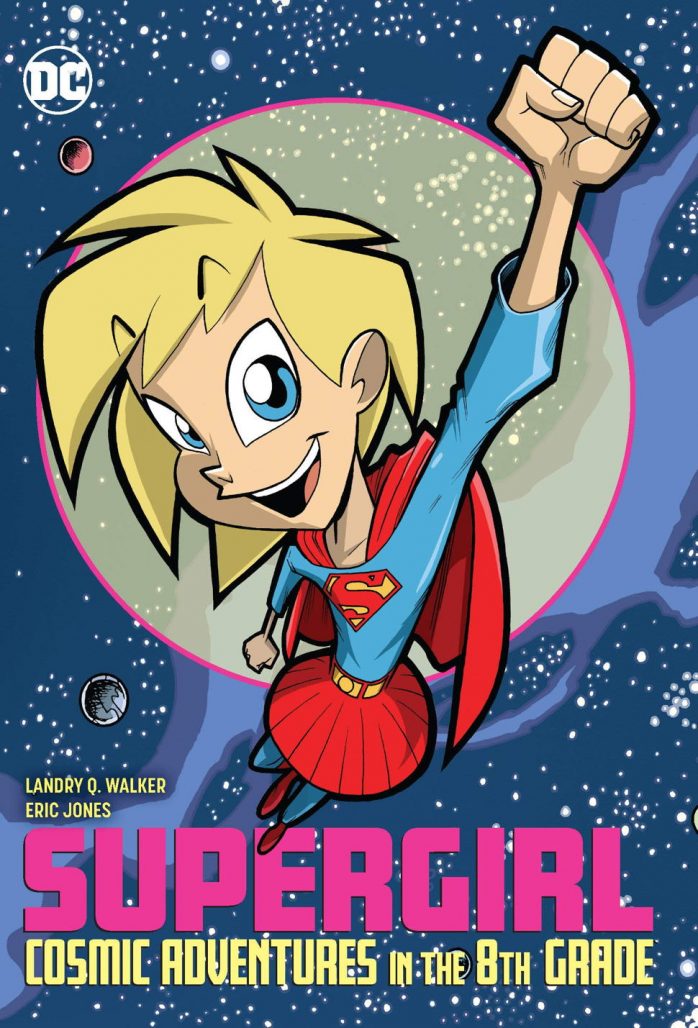
Jones: Absolutely. I mean, it was a whole battle. I had Paul Levitz tell me in a room full of my peers of senior editors and that my books were a cute experiment, but I failed. But it was so funny because that was the same year Tiny Titans won the Eisner! And then Paul said, well, maybe you had something with that! [The line] had so much potential. We had Darwyn Cooke pitching us an all-ages Wonder Woman book. And Paul thought he should work on something else. Dan [DiDio] was supportive of it and the consumer products people saw the potential, but I couldn’t get anything approved beyond what I had, and it was so frustrating. But it’s great to see in the market now with all of these books and this talent and, you know, I still think we need a sequel to Supergirl: Cosmic Adventures. Landry [Q. Walker] and Eric Jones still make more money in royalties off that book than books they did with Frank Miller and Bill Sienkiewicz, because it’s evergreen. But I think we set the tone and Tiny Titans showed that it could be profitable and the potential of what it could be and what it should be. And so I’m so proud to have had a hand in that.
MacDonald: Not to make this all about the past, and not to give them a pass, but at least Paul will admit when he’s wrong.
Jones: Yes, he does. I think it was because they had tried it before, but with his friends and it didn’t succeed. And so therefore nobody could succeed at it. He couldn’t wrap his head around it. But I saw Paul two years ago at Comic-Con and we had a really lovely exchange. I get what Paul was trying to do. I understand he was trying to protect the overall brand. He had always explained it to me that if we took these licenses with our characters, then Warner Brothers and other people can come in and do the same and we won’t have the control over it. So like, I get it.
MacDonald: To bring it back to the present, looking at it from my viewpoint Legendary obviously is part of a larger company. It has a lot of resources, but also, you’re a relatively small line out there. How does Legendary get attention in a pretty crowded field?
Napton: I think that’s a very astute comment because I think a lot of people look at Legendary as a big movie and television company. As you alluded to, we’ve all seen comic publishers come and go that were really just trying to make comics to turn into movies and TV shows. I could name some, but I won’t because they’ve all come and gone. That was never the intention of Legendary. Thomas loved comics. It’s why the first movie his company did was Batman Begins. So that’s really in the DNA of everything we do. We all love comics. It was quite an interesting experience to be the last person of the old era and try to figure out what I thought it should be. And honestly, the only simple decision I made was to bring people on board that weren’t me — I didn’t want to replace the people who left with many versions of myself. I feel comics publishing has always suffered from a group think of a lot of like-minded people making like-minded decisions about material. And that can be bad.
I’m not trying to build something that just speaks to one segment. We want something that really crosses over to all the readers. Readers are constantly changing and new people are coming in. I was part of the manga explosion at Bandai, and that brought in a whole new segment of younger readers, younger female readers. The smart publishers have built on that. And so we’re just trying to offer a diverse slate that appeals to everyone who might want to read comics.
With our licensed comics, we’re actually crafting licensed comic stories with the same filmmakers and producers who making the movie. I can’t think of anyone else who’s able to sit at the same table and say, what’s the comics piece going to be, that’s going to accentuate the movie in the franchise.
MacDonald: Also, I see you have been working with Webtoon. Can you talk about that collaboration and how that works?
Napton: I’m proud to say we were one of the first companies to jump on the Webtoon platform when they launched around five years ago. Maybe because of having done manga at Bandai and my background in the anime industry, I was very warm to what Webtoon was trying to do. And to me it was speaking to the audience that that came as a result of the manga explosion in the US, younger female readers. I felt Legendary Comics was not serving that area at all.
We launched with a webcomic called Firebrand which Jessica Chobot and Erika Lewis co-created, and it’s been a great relationship. And we have a new Webtoon that just launched a couple months ago called Rob. We have another one we haven’t announced. What I like is it’s free comics, so anyone who has a phone, which is pretty much everyone, can read a comic. And it skews to a different audience, which is exciting. Webtoon and Tapas and the other platforms have brought in a new readers. The newsstand business pretty much got destroyed in the early ’90s, so to me, mobile comics is a way to replace that.
MacDonald: So when you put something on Webtoon you serialize it for print?
Napton: A “season” on Webtoon is about the equivalent of a six-issue miniseries, or a single OGN. And then, depending on how it performs on Webtoon we could do a second one and a third one. They’re weekly, so it’s a little tricky. The format is optimized for a cell phone, so there are unique challenges to deal with that. But it’s really exciting and I’m glad we’re a part of it because — look, I came into the comics industry in the early ’90s, and there was definitely just that tried-and-true method. This is how it’s done. We make comics, we sell them in comics shops. Back then the trade paperback business in bookstores wasn’t even really a factor. So I think anything that breaks down the walls and makes comics more accessible is for the betterment of the art form and the industry in the US.
MacDonald: So there’s a couple of Legendary properties that I really would be kicked off of my Slack if I didn’t ask you about. Pacific Rim! There’s such a strong fanbase for that. Are you guys doing anything with that?
Napton: We’re all real proud of the anime Pacific Rim: The Black that launched in March. There’s something brewing tied to the anime, that we haven’t formally announced. It’s one of the IPs that Legendary created and completely controls, so we’re always looking to go where Pacific Rim goes.
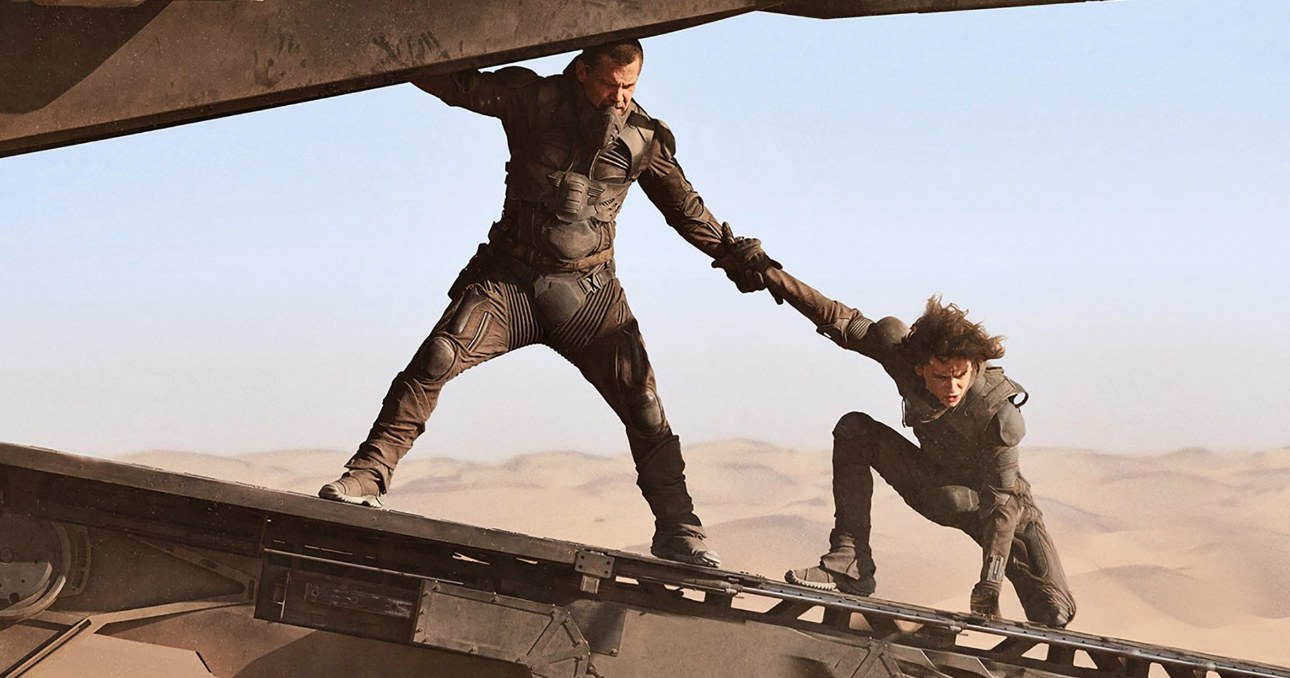
MacDonald: The other one I have to ask is Dune — which I will only see in a theater. We’re so excited for it!
Napton: We’re doing Dune? I hadn’t heard that. [general laughter] I can’t say much, actually — I’ll get in trouble. But I’m an old school nerd, so I read Dune when I was in middle school and high school, so to be at a company that’s doing what could be the pretty definitive Dune movie is really exciting. That’s the cool thing — when I got to Legendary in 2014, I really felt like everything I had been interested in and everything I had done professionally was useful to my time at Legendary. Like we announced a Mobile Suit Gundam movie — I worked on Gundam at Bandai for seven years and worked with the people at Sunrise who suddenly are going to be working with Legendary. So it was really like a homecoming.
MacDonald: I know we were joking about it before about being a lifer and all that, but why wouldn’t you stick with this field where all these things that we love are accepted and honored and fun. Well, most of the time, fun. So anything else Beat readers need to know about Legendary?
Napton: We announced last July, we’re doing a graphic novel with Oscar Isaac called Head Wounds: Sparrow. It’s a story that Oscar developed with two of his childhood friends and a gentleman named Jason Spire, who works with Oscar.
MacDonald: I missed that, which is weird, because usually I closely monitor everything Oscar Isaac does.
Napton: We talked about it on our Comic-Con@Home panel last summer. Oscar, like Thomas, is a true fan. He grew up with video games, comics, and he and his buddies used to do this sort of stuff when they were kids. And now they’re doing one for us professionally. Christian Ward, who is a genius, is doing the artwork. We announced the book and then conveniently he won two Eisner Awards. It’s a crime story, very rooted in noir, but with a fantastical element.
Jann: Legendary is an exciting place to be. And it’s a really exciting time. I think, we have a lot of opportunities that some of the larger publishers don’t. We’re really nimble. We get to work with the filmmakers on a daily basis and we are encouraged to make awesome original projects. And that is not something that is found in a lot of companies.
Kannekanti: And just to echo what Jann said, it’s a really exciting time. It’s really fun to find new voices work with new and emerging talent and find cool projects that haven’t been told before and in the process be able to give voice to people who haven’t really had an opportunity to break into graphic novels. Overall it’s just it’s been really fun for me and I’m really excited for what we have ahead.
Napton: When studios go through an ownership change, especially the one we went through, from being privately owned to owned by a big entertainment conglomerate in China, there’s a lot of change that can occur. Josh Grode, our new CEO, and Mary Parent came in and took over from the old senior management team, with Josh having come from Marvel. So he really had an appreciation for comics. And it would’ve been very easy for them to say “what are you guys doing over there?” but he’s really given us an opportunity to reboot and rebrand. I‘m really grateful for the support. In fact, the Oscar Isaac project came because Mary and Cale Boyter, one of our producers, were on the set of Dune with Oscar. And he was talking about the project and they were like, well, we have a comics division… And that’s how we came by the Oscar project. So that’s how Legendary can work. And that’s how it should work.
MacDonald: See. That’s why every movie studio should have a well funded comic book division.
Napton: Absolutely. So we’re getting a lot of support and I’m just excited. We’re still here and we have the opportunity to do something new. It’s a new Legendary Comics with a new perspective.
More details on Legendary’s YA line:
- Championess, (in stores now), inspired on the true story of Elizabeth Wilkinson, a female bare-knuckle boxer in 18th century London. Elizabeth and her sister Tess struggle to make ends meet and cover Tess’s debts. While Elizabeth works odd jobs at the local newspaper, the only way she knows how to make enough money to help them survive is her true passion, bareknuckle boxing. With Tess’s support, Elizabeth trains at the boxing facility of one of the most famous retired boxers and the only real fight promoter of any notoriety, James Figg. As Elizabeth trains with Figg and James Stokes, she confronts her personal demons of what destroyed her family and comes to terms with being the first half-Indian female boxer in a white male world. Writers: Tarun Shanker and Kelly Zekas. Artist: Amanda Perez Puentes.
- The Heart Hunter, (August 3, 2021), set on the cursed island of Envecor, where everyone is doomed to wear their heart outside their body and are immortal—unable to die, to change, to have children — until they find their soul mate. Paired soul mates are then turned mortal, freed from the curse, and able to leave. But all fairy tales have a dark side: those who don’t want to lose their immortality pay “Heart Hunters” to find their soul mates and kill them so they may remain immortal. Psyche, a Heart Hunter, is hired by the king to kill his soulmate. As she sets out on her quest, she begins her own journey of mending her broken heart and learning to trust again. Writer: Mickey George. Artist: V. Gagnon.
- Lupina (September 14, 2021) a six-part captivating saga about a young girl on a journey of revenge with her wolf companion. In the coastal town of Kote, recently brought under the yoke of the Addalian Empire, four-year-old Lupa spends her days getting bullied by her older sister and hiding behind her mother’s skirts. But when tragedy strikes, Lupa finds herself alone in a new world… alone until she’s found by the she-wolf, Coras, and sets off on a journey of discovery… and revenge. Writer: Eisner Award-nominated writer James F. Wright. Artist: Li Buszka.
- The Witches of Silverlake(October 1, 2022) the story of Elliot Green, who moves across country to start high school in one of Los Angeles’ most prestigious private schools. He’s quickly taken in by the school’s outcasts: the scholarship kids; the queer kids; and the ones who just don’t really fit in with the glossy trust fund babies of SJTBA. They quickly let him in on their little secret…they are witches. Elliot joins them in their world among the crystal stores and occult shops of Silverlake and ends up joining his new friends’ coven. During one of their magical experiments, they accidentally release a bloodthirsty demon that starts murdering their classmates and teachers. Elliot and his coven realize that the fun and games of playing with crystals and candles is over, that magic is powerful, real, and that it might be more dangerous than they’d ever imagined. Writer: Simon Curtis. Artist: Stephanie Son.
- Tragic (April 18, 2022) – a retelling of Shakespeare’s Hamlet from a queer lens and told through the eyes of 17-year-old Harper Hayes. After her father Hamilton dies a mysterious and tragic death, Harper is convinced that he was murdered, and her first suspect is her uncle, who has been sleeping with her mother. With the help of her ex-girlfriend Talia and her best friend (sometimes with benefits) Holden, Harper is determined to find her father’s killer. But when Caius, Talia’s father and Hamilton’s business partner, is also found dead, Harper realizes the answer to Hamilton’s murder is more complicated than she had initially realized. As Harper begins to see her father’s ghost in the form of a teenage Hamlet everywhere and starts slipping into hallucinations of his murder that end with blood on her hands, one thing becomes clear—in order to uncover the truth about what happened to her father, Harper has to confront her own demons and ones that haunt the Hayes family. Writer: Dana Mele. Artist: Valentina Pinti. Colorist: Chiara Di Francia.
Additional Titles:
- Head Wounds: Sparrow (November 9, 2021): Leo Guidry is a bad person and an even worse cop. When he suffers a psychic head wound, his life on the edge slips into spiritual warfare. In a landscape of angels, devils, and everything in between, can a person utterly devoid of empathy find a way to overcome the forces of darkness that have infiltrated his reality? This is the world of Head Wounds: Sparrow. The new original supernatural noir graphic novel — from creator Bob Johnson, with story by John Alvey, and developed by actor Oscar Isaac and Jason Spire — is written by New York Times’ best-selling writer Brian Buccellato and features art by Christian Ward.
- The Science of Ghosts (December 7, 2021): While navigating the mysteries of the afterlife, Joy Ravenna – a transgender parapsychologist, must also deal with the very real challenges of her past and present. Her first post-transition relationship, a hostile ex-wife, and clues to murder long forgotten will test her at every twist and turn. For Joy, working with ghosts is way easier than dealing with the living. Writer: Eisner and GLAAD Award nominated Lilah Sturges. Artist: Eisner and GLAAD Award-winner Alitha E. Martinez.




